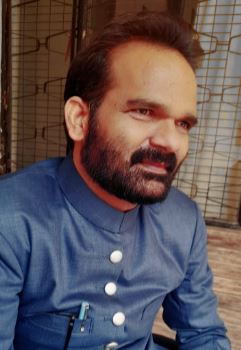
Aligarh : Professor Mohd. Shadab Khan, Department of Commerce, Aligarh Muslim University (AMU) delivered an invited lecture as a resource person in the one week Short Term Course (FDP) on Outcome Based Teaching, Learning and Assessment in the New Normal organised by the University of Kerala Study and Research Centre (UKSRC) Alappuzha & Department of Commerce in collaboration with UGC- Human Resource Development Centre, University of Kerala.
Professor Khan started his lecture with the quotation of Horace Mann who said, “A Teacher who is attempting to teach without inspiring the [student] with a desire to learn is hammering on a cold iron”. He said there are two fundamentally different ways of understanding teaching. The first sees teaching as an instructor-centered activity in which knowledge is transmitted from someone who has acquired that knowledge to novice learners: teaching as knowledge transmission. In the second case teaching, as a learner-centered activity in which the instructor ensures that learning is made possible for novice learners and supports, guides, and encourages them in their active and independent creation of new knowledge: teaching as assisted knowledge creation.
He identified various teaching mistakes e.g. disrespecting students, teaching without clear learning objectives, getting stuck in a rut, giving tests that are too long, failing to establish relevance, having students work in groups with no individual accountability, failing to provide variety in instruction, calling on students cold, when an instructor asks a question in class, immediately call for volunteers.
He also discussed direct instruction strategy, and interactive teaching including independent study such as essays, computer aided instruction, journals, reports, home work, research projects, self assessment and experimental learning through field trips, conducting experiments, simulations, and community engaged learning, internship etc.
In addition, a number of other modes of outcome-based teaching and learning in the new normal were highlighted.




